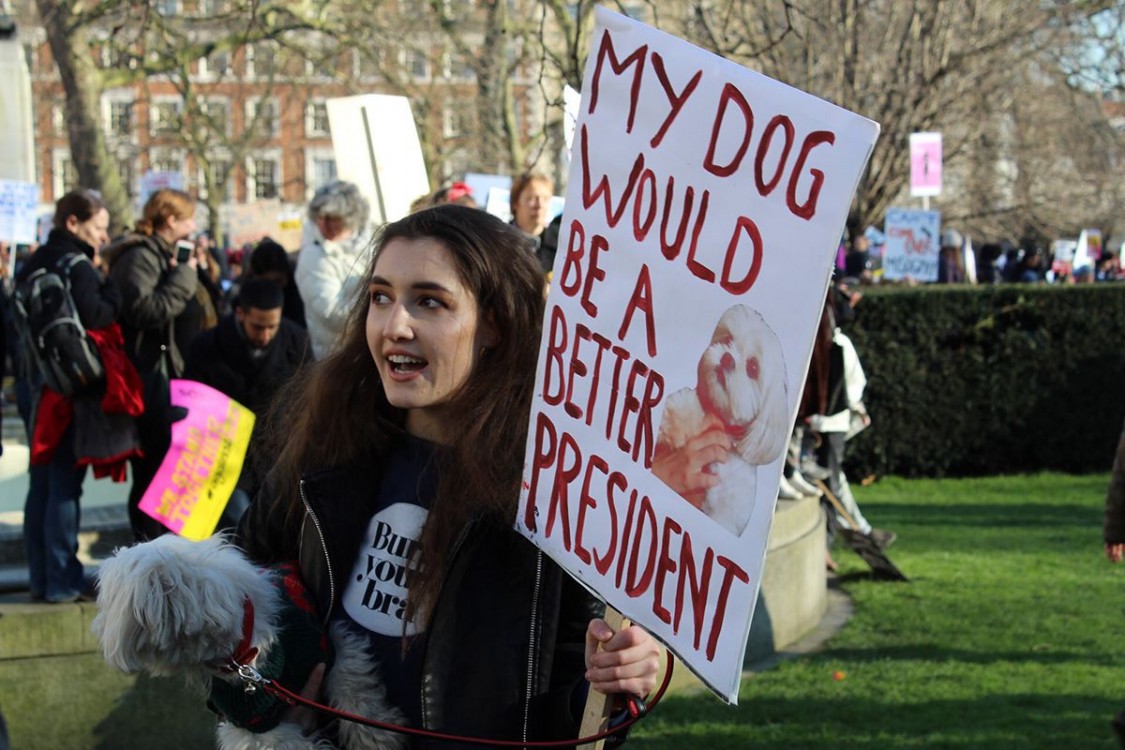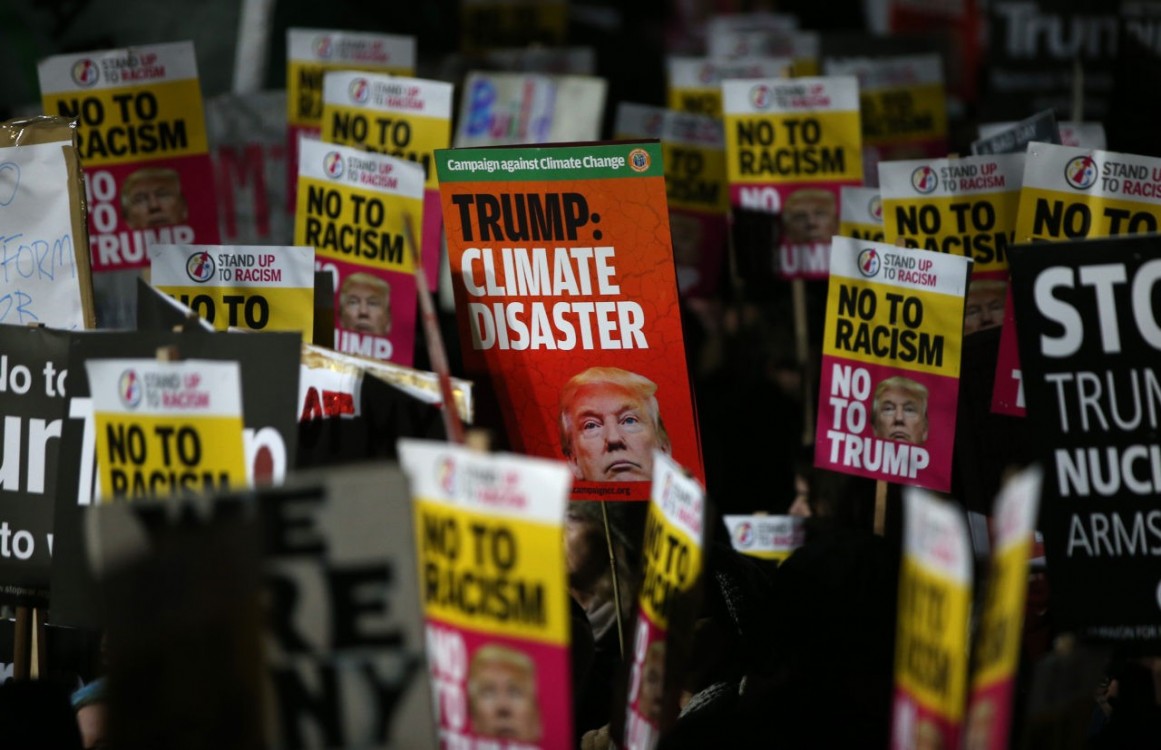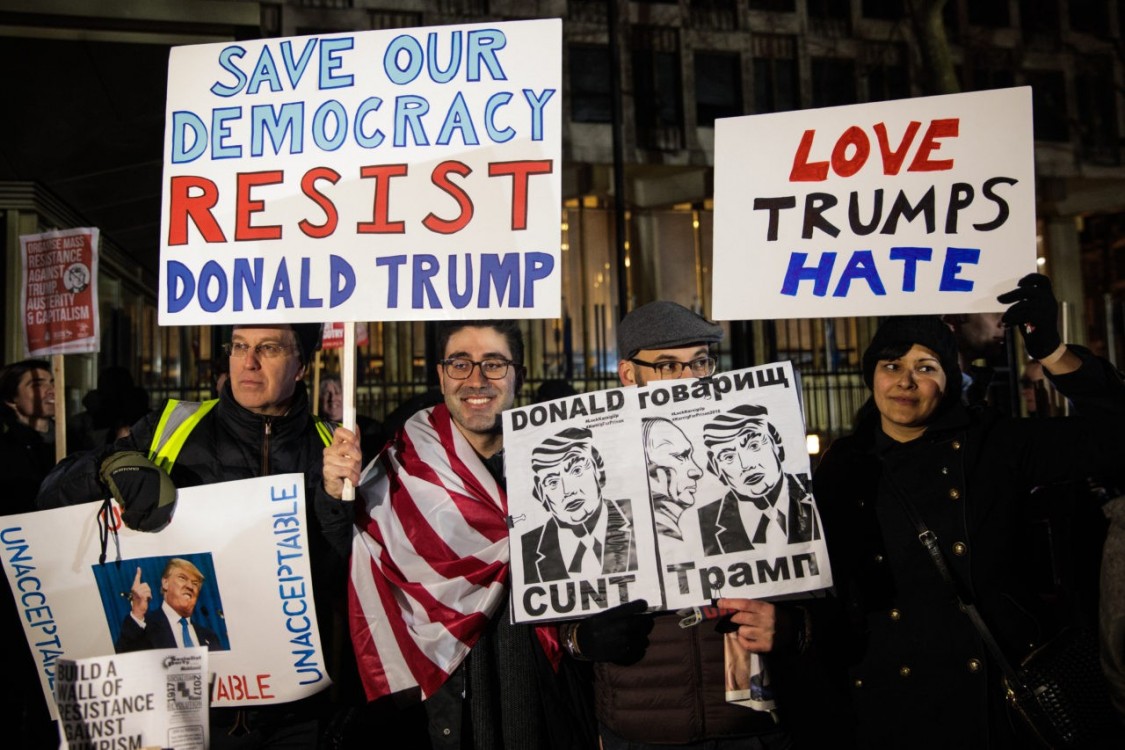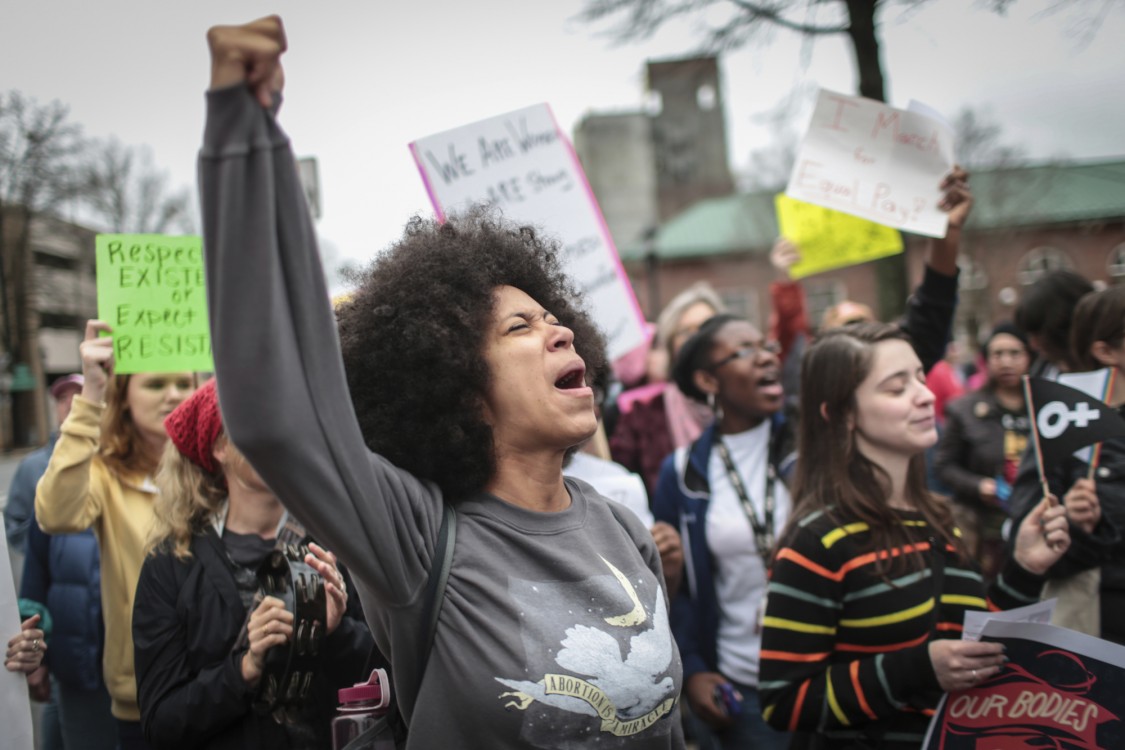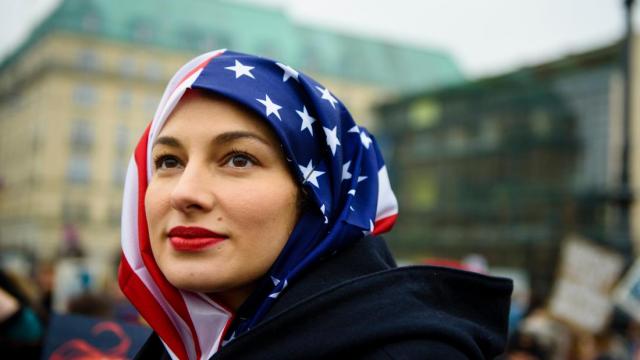
It's been a little over a week since Donald Trump assumed office as President of the United States and already the world has risen up to protest his promised policies, some of which are already being enacted.
The gigantic Women's March on Washington on Jan. 21 kickstarted the round of protests that swept the U.S. and the world, with estimates that more than 3 million people participated in many hundreds of American cities and dozens of nations. While the exact numbers seem to remain an issue of debate among analysts, statisticians – and most especially, Trump himself – the reaction taking place in Europe, Asia and elsewhere cannot be disputed.
From Athens to Manila
In London on January 21, more than 100,000 gathered in peaceful protest against the nationalist policies promised by the Trump administration. The high point of the protest was the unfurling of a "Build Bridges Not Walls" banner across London Bridge. According to Ian Kearns, co-founder of the European Leadership Network, “If he follows through – and people have to come to terms with the fact he may well do what he says he’s going to do – then it’s the end of the post-World War II, post-Cold War order and the beginning of a new phase.”
The reaction is understandable given the growing isolationist movements that are cropping up across Europe and the meteoric rise of populist rightwing movements in Denmark, France and Holland, all of which are promising a retreat from the EU and a slew of nationalist policies. According to a prediction by Marine Le Pen, leader of the French National Front, “[2017] will be the year of the Continental peoples rising up.”
Le Pen's recent address in Koblenz, Germany, largely seemed to echo the sentiment of a European continent that is going through a radical shift in economic, cultural and political identity, using Trump's projected policy moves as a sort of measuring stick for European countries' own future policies. If the derision confronting German Chancellor Angela Merkel and other political predictions are anything to go by, the next four years could determine whether the EU will be made anew or forever broken.
From Berlin's Brandenburg Gate to the streets of Athens, European citizens raised their voices in opposition to what they fear could be the rise of a new rightwing era emboldened further by a Trump presidency. In Syntagma Square, Greek activists and refugees gathered and chanted in dissent against the U.S. president, whose dangerous, xenophobic policies could bolster support for far-right leaning groups inside the country. According to Petros Konstantinou, coordinator of the Movement United against Racism and Fascism: “We fight for human rights, women’s rights and refugees’ rights, in order to prevent the transformation of America into a center of racism, and to avoid a war with China, as Trump has announced.”
Meanwhile, halfway across the world in the Philippines, hundreds gathered around the U.S. Embassy in Manilla and burned American flags while demanding that their own President Federico Duterte stay true to his policy of non-cooperation with a Trump-led America.
Following Trump's anti-immigration executive order banning Muslims from entering the U.S., the response by European leaders has been swift and vocal, with Luxembourg's Foreign Minister Jean Asselborn saying, “The American president is dividing the Muslim world into good and evil with this... The decision is also bad for Europe because it will increase the Muslim world’s mistrust and hatred of the West.”
Not everyone, though, seems so openly opposed to the 45th U.S. President. In Moscow, citizens openly celebrated Donald Trump's ascension into office, with some even hoping that America's new foreign policy would allow for the negotiation of more favorable deals between the U.S. and Russia. According to Katya Boudayva, an agriculture businesswoman who attended one of the Russian Trump inaugural parties, “I hope we will be friends and I hope there will be a certain... move toward each other between our countries. But it’s unpredictable. I think nobody can say for sure what will happen. We’ll see. Let’s hope for the best.”
In Nigeria, a pro-Trump protest was allegedly broken up by a violent police raid that left 11 people dead, according to reports by independent sources. The raid came possibly in reaction to an attempt of Igbo leaders who have sought audience with Donald Trump as part of their attempt to establish a separate Biafran nation-state within the continent, a process that has been taking place since 2016 when Trump's candidacy was announced.
Meanwhile, Israeli Prime Minister Benjamin Netanyahu sent a congratulatory tweet to Trump on the day of his inauguration, as Israel looks to Trump to help amend tense U.S.-Israeli relations of the past several years. A comment by Yuval Steinitz, Israel's Minister of Energy and Infrastructure, seemed to express more nuance: “We are all praying that, alongside his sense of humor and colorful personality, Trump will understand the weight of responsibility lying on his shoulders and will turn out to be a courageous and serious president.”
His sentiment is certainly shared by hundreds of millions in the U.S. and around the world, across every political and personal leaning, who fear that their well-being could be sacrificed as Trump proceeds against all caution to remake America.
3 WAYS TO SHOW YOUR SUPPORT
- Log in to post comments

